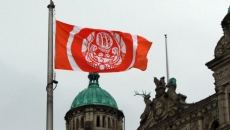The federal New Democrats have rejected the first draft of the Liberals' pharmacare legislation, in what the health minister describes as "extremely fluid" negotiations over the highly anticipated bill.
The Liberals promised to table pharmacare legislation this fall as part of the supply-and-confidence deal the government struck with the NDP.
That deal calls for "progress toward a universal national pharmacare program" and the passage of initial legislation before the end of the year. But NDP health critic Don Davies says the first draft of the bill didn't meet expectations.
"It doesn't meet the New Democrats' red lines at this point," Davies said in an interview. "We're waiting for a next draft to come to us."
Davies said the NDP will accept nothing less than a commitment to pharmacare paid for and administered through the public single-payer system, though it doesn't have to happen all at once.
The NDP would be willing to start with essential medicines and expand from there, he said, but wants to see the timelines enshrined in the legislation.
Health Minister Mark Holland would not say whether the coming legislation would commit to any particular model, because the situation could change by the time the bill is tabled.
Holland said he's been speaking with the NDP about what is possible, both in terms of the legislation and other promised progress on pharmacare, including a national list of drugs and the formation of a new drug agency to negotiate drug prices on behalf of Canadians.
"That process is moving back and forth, and it's extremely fluid, and it's changing with every conversation that we have," Holland said in an interview.
Whatever the government eventually lands on, he said the legislation will serve as a foundation for national pharmacare and will not reflect the final version of the program.
"What we announce will certainly not be the end of the story," Holland said. "When we get that work done and that foundation right, it means everything else can go up more quickly thereafter."
There's a wide spectrum of options the government could consider when drafting the legislation, from the NDP's vision for a single-payer system to a vaguely worded piece of legislation that makes no mention of how pharmacare will be achieved.
The Liberals could also consider a program that only offers coverage to people with low incomes who aren't already insured, as it has with its upcoming dental care plan.
But when the Liberals tasked an advisory council to figure out the best option in 2019, a single-payer system was the obvious choice, said Dr. Eric Hoskins, who chaired the committee that wrote the definitive pharmacare report.
"It's also consistent with virtually every commission or committee or expert group that has looked at this issue over the decades for Canada, in recommending a single-payer public model," Hoskins said.
His report found that a single-payer model would give the government the bargaining power to reduce drug prices, reduce administrative costs, save money on treatments and reduce expensive hospital visits.
He said he's been in talks with the NDP, Liberals and advocates as the government puts the legislation together.
"I felt it important that I deepen those conversations and provide whatever advice and help I can," he said in an interview. "It's an enormously complex undertaking."
That's part of the reason the committee's report recommended that as a country, "we start with essential meds," he said.
The government is under no obligation to attach any funds to the legislation at this point, but in 2017 the parliamentary budget officer estimated that a pharmacare plan would cost $19.3 billion per year if it had been implemented in 2015, and would grow over time to cost $22.6 billion annually.
In today’s dollars, the annual cost would be between $23 billion and $27 billion.
At the same time, overall spending on drugs — between governments, insurance companies and Canadians — would be expected to drop by $4.4 billion as a result of better purchasing power.
Hoskins said starting with essential medicines would only cost roughly $3.5 to $4.5 billion per year. That would cover roughly half of all the prescriptions written each year.
"That would be an enormous victory for Canadians," he said, with a "transformational impact."
The government must still consider the upfront costs of a new program like pharmacare, though, said Robert Asselin, senior vice-president of policy at the Business Council of Canada. He was also the director of policy for former Liberal finance minister Bill Morneau.
Canada is heading into an economic slowdown, which means less revenue for the government. The cost of servicing the government's debt is expected to be higher than what was predicted in the last budget.
"It's not a question of whether these programs are good or bad for the country. It's a matter of: can we afford them with the fiscal outlook that we have?" Asselin said.
Asselin said it's clear to him that the government can't currently afford the full-fledged program, even if it is more efficient in the long run.
"If growth is back, and the outlook looks better, maybe we could reconsider some of these programs. But right now, I think, would be really a bad time to introduce such a big program," he said.
Whatever is tabled in the final legislation will likely be very broad and similar to the Canada Health Act, said Simon Fraser University health policy adjunct professor Steven Lewis.
That means many important details, such as the roles of provinces and of private insurance companies, will likely come later — and will presumably be dictated by how much the government is willing to spend, he said.
"Provinces will be wary of committing unless the feds come through with the money," he added.
Holland would not say when the legislation is expected to be tabled, but has committed to meeting the end-of-year deadline in the supply-and-confidence agreement.






